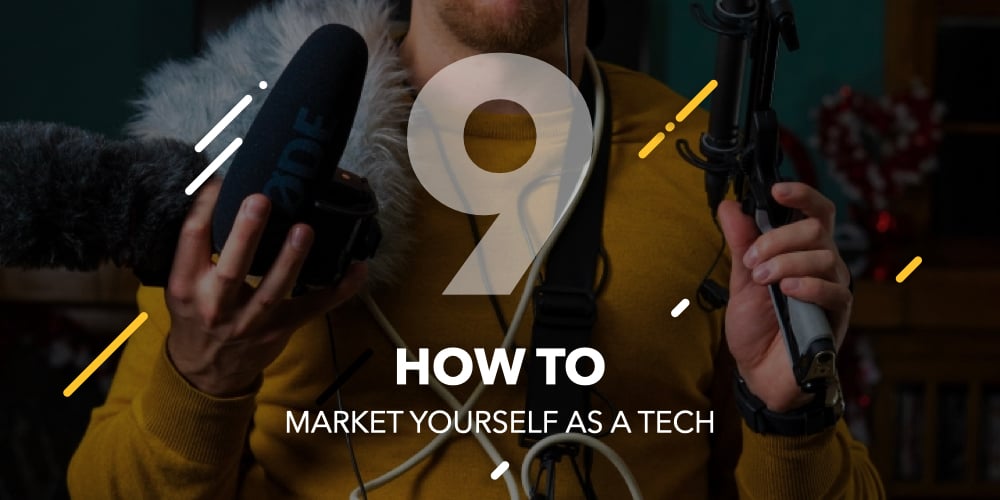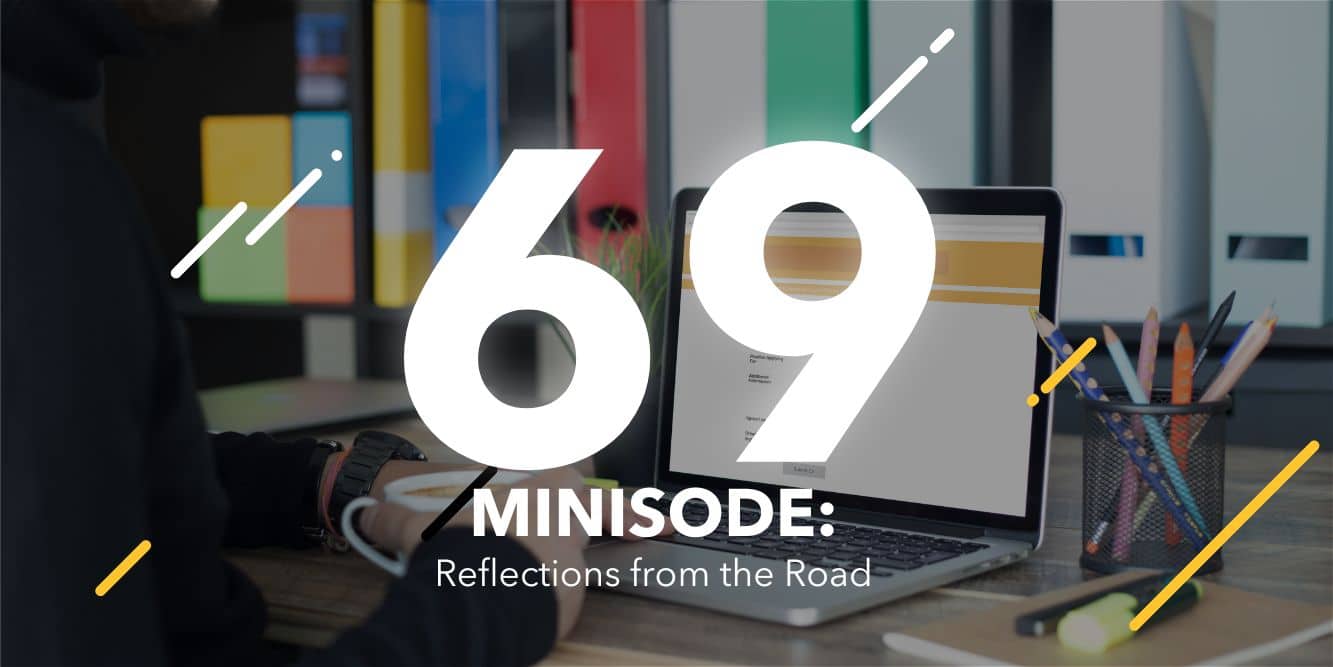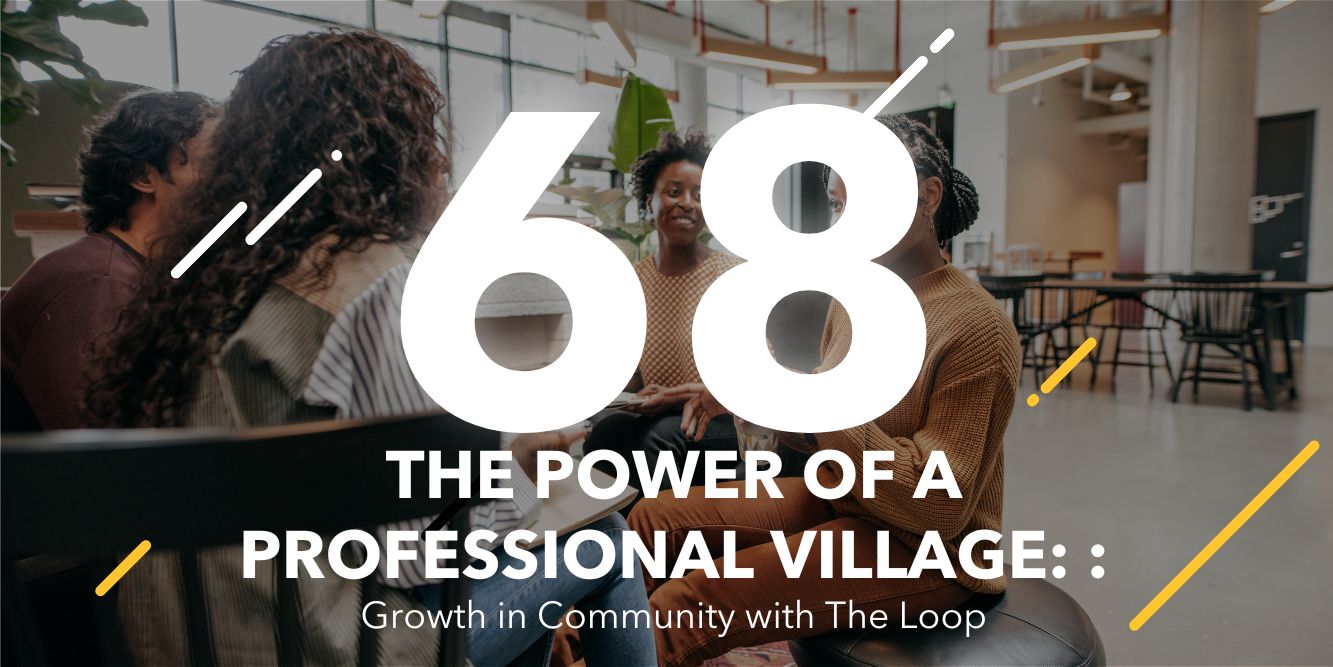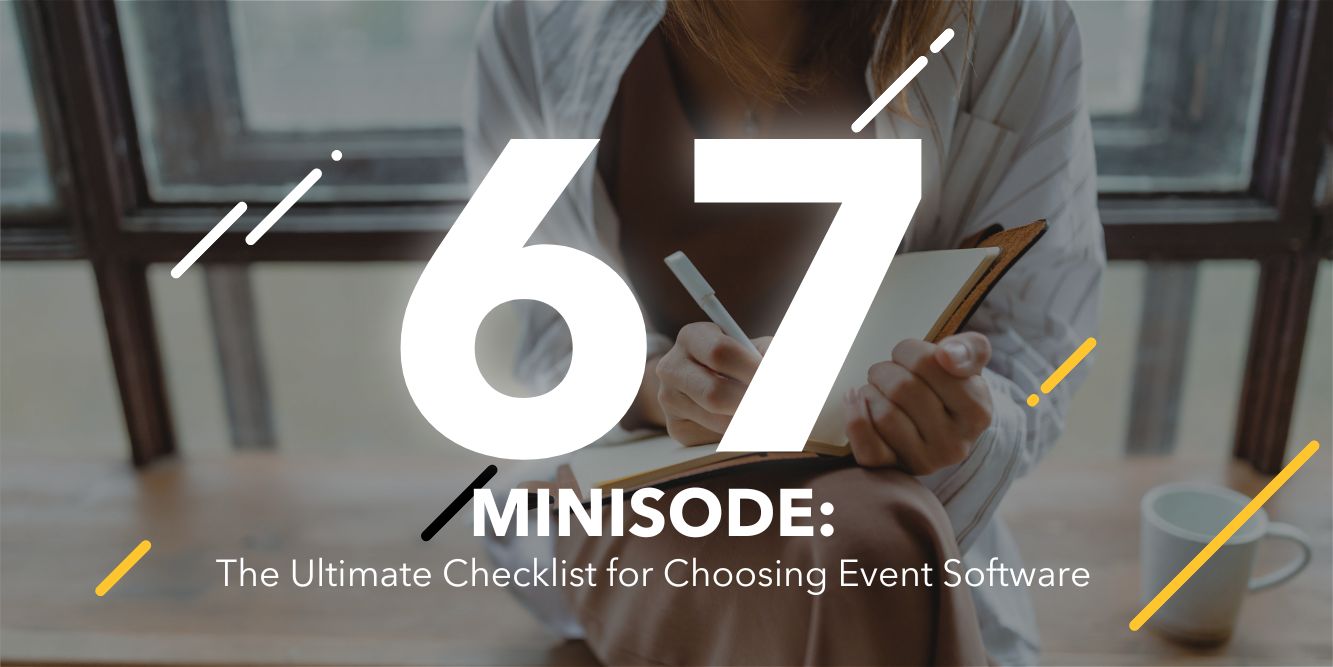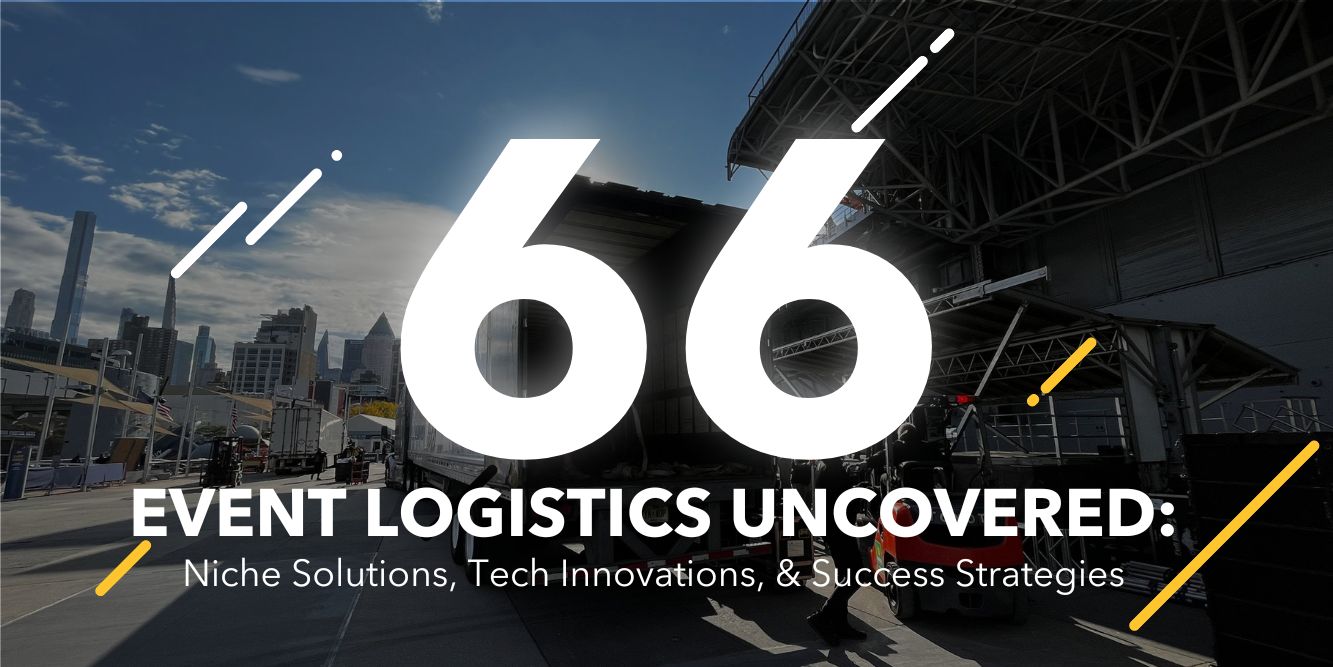Listen 🎧
Angela Alea: Welcome back to another episode of Corralling The Chaos. Today, we have a special guest with us. That’s gonna help us unpack some dos and don’ts, and some advice for techs joining the industry, as well as some of those that have been in the industry, that it’s a good refresher, right? Of good things to do, to help market yourself, to find more gigs and to how to really stand out in this industry. So with that welcome Michele Smith for joining us!
[00:00:57] Michele has been in the industry crewing for over 17 years. She’s done crewing for companies like PRG, LMG, IMS, all the three-letter acronyms as well as Christie lights. And then for the past year, we are honored that she has done that with LASSO. She does a great job and really prides herself in establishing great relationships with the techs in the industry.
[00:01:21] I can certainly vouch for that. The thing I love about Michele is she really connects on a human level with these people. She gets to know them, their families, and they become friends and that’s really important in this type of industry. Um, but she loves helping crew and clients create a great experience.
[00:01:40] So thank you, Michele, for joining us today.
Michele: Thank you for having me.
Watch 📺
Angela Alea: Awesome. Well, let’s dive in. I wanna start first with you kind of have to be really committed to this industry, to do what you do. And to do it for the past 17 years. Um, you know, we hear our clients talk about crewing. They say, it’s like a [00:02:00] game of Tetris, right?
[00:02:01] You’ve gotta serve your own internal company as well as the tech pitting people in the right slots. And it’s not just warm bodies, right? It’s really kind of matching the skillset with what the need is of the client. What type of show it is, what type of room it is. So there’s a lot of things that you have to balance. You’ve obviously been here for a long time. You stayed through the pandemic, so why do you love this industry?
Michele: Oh, hands down the people, like you said, you know, there are so many great people in this industry. It takes kind of a little bit of a certain kind of individual, not just to get started in the industry, but to continue to wanna be in the industry and be successful.
[00:02:38] And there’s just so many, there’s brilliant people and folks that are just a lot of fun folks that are truly genuine that will have your back. So I think, you know like you said, I’ve established relationships, experienced milestones together in life, vacationed together, you know, experienced the ups and downs.
[00:02:54] And so there’s just really some great, great people in this industry.
Angela Alea: Agreed. I’m sure in your time in this industry, you’ve had thousands and thousands of conversations. So when you think about, you know, trying to connect with these people for the first time, in those initial conversations, what makes a great tech stand out?
Michele: You know, the first thing that comes to mind is attitude. I’m not a technical person. So for me, it’s more of those other skills that I notice first, someone that just is always gonna be positive because as we know the industry is… the only predictable thing is the unpredictability of it. Right? So, folks that can roll with the punches that know how to handle the stress on-site last minute changes and still have a good attitude.
[00:03:40] Sometimes it’s not pleasant. Of course, that’s just the reality. Folks that are able to just have a good attitude with the folks, hiring them and also. We put a tremendous amount of trust in these individuals to be face-to-face with our clients. So the ability to know that… to have peace of mind for us, that we can do [00:04:00] that, and you’re gonna put your best foot forward, put us in a good light and you’re gonna make the client feel at ease, and you’re gonna be helpful to them.
[00:04:06] Right now, dependability is also huge. Following through in your commitment, being reliable. There’s a lot of opportunity out there and not a lot of folks that are available to take those opportunities. So that’s a huge one. Those client skills is huge. So, but I think ultimately it all gets wrapped up into the attitude.
Angela Alea: So that’s a really good point, right? Because you can’t really portray that on a resume, right? The attitude. So how do you gauge that? In a phone call? Is it something that they like, give me an example of when you talk to a tech and you’re like, Hmm. Something about them makes me feel like they’re not gonna have a great attitude.
[00:04:46] So what are some of those things that you see some of the red flags that are like, yep. This person may not have the right attitude for this.
Michele: Well, right off the bat, sometimes when you’re on the phone with them, um, it could just be, you know, [00:05:00] You can tell that they’re not fully giving you their attention.
[00:05:04] They’re kind of multitasking in the background, you know, and especially if they’ve scheduled the call, I feel like there’s not really an excuse for that unless something came up and then you can always reschedule other things that come up are… if they tend to have a lot of negative comments related to previous clients or even other crew members and technicians, that’s usually kind of a bit of a flag as well as to just their overall attitude and their behavior and just kind of their perspective.
[00:05:31] Yeah. I, you know, if. If they’re even late to, you know, to the call, things like that, because obviously, we know being on time is integral to this industry. Yeah. So that’s always, you know, kind of a first impression as well. Yeah, absolutely.
Angela Alea: So, you know, you talk about attitude in this industry, which I think is such an important skill set for people to have because, you know, we all know there are people that have been in [00:06:00] this industry for 30 years.
[00:06:02] Unbelievably talented when it comes to their technical skillset, but either their arrogance or their attitude or their cynicism kind of gets in the way. So why do you think so many people in our industry are skeptical and cynical?
Michele: Well, frankly, they’ve been burned. You know, there are a lot of companies out there that are a little less than honest and have treated technicians poorly and not fairly. Yeah. When you think of these technicians, they’re, they’re the sole person responsible for their livelihood so they have to be very particular in who they choose to work with.
And if they’ve been burned in the past and a new client calls them up, unless that client came via a recommendation from a trusted source or it’s somebody they worked with before, it’s understandable why they would be a little hesitant and kind of glass half [00:07:00] full.
[00:07:01] But then you have the opportunity to prove them wrong. I think, you know, they might have a bad experience on-site. Let’s say, let’s say an end client makes a bad decision. The end client is not necessarily the person that booked you and is gonna pay you. So sometimes there is an association naturally that, you know, one is responsible for the other, but that’s not reality.
[00:07:24] So I think that sometimes is a part of it as well. And the way to fix that really is just treat your people, right. Not just most of the time, but every time.
Interested in this topic? You might like: Episode 4: Defining Professionalism Ft. Mel Baglio & Bob Solsbak
Angela Alea: Yeah. That’s, that’s so true. And these techs talk, right? The companies who are known for doing great things and treating their crew with respect and paying well and paying on.
[00:07:46] They have a reputation on the flip side, those that don’t, they also have a reputation, right? So it’s important to pick the reputation that you want to carry because you have one, whether you like it or not, it’s just, you know, we all strive to have a good [00:08:00] reputation, but you know, you brought up something interesting many times, it’s the end client, who’s making decisions.
[00:08:07] And then it kind of all falls downhill. Right? That chaos, it kind of starts in one place. And typically the recipient is. The crew member on site, the people on site, the producer, right. And they’re just kind of asked to deal with it. And so there it is a very fragmented industry, especially since so many of these people are, are freelancers, right.
[00:08:27] They work for numerous companies throughout the year. So there’s not a lot of loyalty or connection that would exist as if they were a full-time person on their bench. So we as an industry, obviously have a lot of work to do to kind of entice and enhance that connection and community within the industry.
[00:08:45] So how do we do that? Given the disconnect between the client and the people, you know, actually working the show, how do we create that when we’re so fragmented?
Michele: I think people just need to be intentional about building relationships. It is, you know, by nature of the lifestyle. you could be working with a particular crew on a particular show and have that kind of show family for a week.
[00:09:13] A few weeks, maybe months. Let’s say if you’re on tour, but then you all go off in your own separate directions to the next gig. So it is just by nature. It is fragmented like you say. And I think, you know, there are organizations, there are societies, there are different memberships that folks can be a part of that are industry-specific.
[00:09:30] I think that’s a great opportunity for folks, to jump into some of those, to establish, you know, more community, more relationships. It’s, it’s hard to establish a foundation and to feel like your feet are grounded and planted in something. But I think looking, you know, you and I have the benefit of working full time for our company.
[00:09:49] So the folks that we interact with every day are the same people each week. And these technicians don’t have that. So it’s easy for us to have that sense of community. So I think maybe [00:10:00] if folks are intentional again about building relationships and looking at these folks is as coworkers, maybe coworkers that you don’t necessarily see for 40 or more hours a week, but you know, you might, there might be years in between when you see each other.
Angela Alea: Yeah, I think the best companies, when I think about, I love the…what you said, the intentionality around building a show, family mm-hmm um, I think that’s so great. And there are companies who do a really good job at that, from the onset, from, you know, the first crew call. Getting everybody together.
[00:10:30] Letting them know, Hey, here are the challenges we’re gonna have on this show. And here’s why your job is important. And here are some things that are outside of our control. We’re gonna ask for some grace and some flexibility, but just know we, we are so glad you are here. We appreciate you, the talent you’re bringing to this, the time away from your family, you know, really just communicating those things because the common denominator for all those people for that five day show is the show.
Everyone’s working to create a [00:11:00] great outcome. And if we focused more on that commonality versus the differences, I think we might have a different outcome versus the shows we hear about where people are showing up. They don’t know where to go. You go over here, I’m called the help, meals aren’t provided…
[00:11:17] There’s no communication, but you know, I thought my call was wrapping at seven only to find out at seven. No, we’re not done. It’s gonna be another six hours. We need to work till after midnight. Right? There’s no like preparation or communication or respect for them as human beings. And mm-hmm, what they have going on.
[00:11:35] I love that phrase of intentionality to build a show family, because if you can all come together, For the common purpose of creating a great show, you can all walk away, really proud of what you accomplished too, and to celebrate together in that. So I love that. Well, as you think about… obviously we talk a lot about the stat being 38% of our industry left.
[00:11:57] And so we are trying to entice them back, but also there’s a lot of new people who are entering the industry because they know we’re a cool industry and you get to see great things and do cool things and you can actually establish a career here. So there’s a lot of new people who are graduating, that are joining the industry.
[00:12:15] So what’s the best piece of advice you would give to somebody who’s new?
Michele: So my default answer for this for years, was a little tongue in cheek of, you know, show up on time and show up sober. And you’ll be ahead of so many people. And while a little crude, I still think that that is solid advice to start with, because anybody that’s been in this industry long enough knows that there are actual struggles that we have relating to that, but absolutely showing up on time, being willing to, to pitch in, if you are tasked with something, you go and do that task, come back and say, what can I do next?
Don’t just go and sit in a banquet chair, [00:13:00] looking at your phone, waiting for somebody to give you instructions. Also. I always say, if you see somebody on site doing what you hope to do someday, Filling a position op in an operator role or whatever it may be that you aspire to someday befriend that person.
[00:13:14] Talk to them, ask them if they would be willing to mentor you, ask them if they would even be willing to let you shadow them from time to time at your own expense, of course, but just, you know, tag along with them. Take notes. See how they’re interacting with the clients, see what tools they have, see what questions they ask, offer to buy them a coffee or drink at the bar after the show that day and just pick their brain.
[00:13:37] I think that’s one of the best ways you have these incredibly brilliant, talented resources that have already shown and proven that they are successful right there, that you’re working side by side with. And for a lot of other industries, that’s not the case. You know, if you wanna be, let’s say an actor or you wanna be you know, a doctor or a musician, you don’t necessarily always have [00:14:00] the best of the.
[00:14:01] Access to those folks, but this industry, we’re very, there’s the benefit of you could be on a next show with them and just say, wow, I, you know, tell me everything that, you know, it’s, it’s not rocket science, what we do. Um, but it still requires, you know, uh, a purposeful, you know, proactiveness to learn and to grow your skill set.
Angela Alea: [00:14:21] There’s so much in what you just said that I wanna unpack. So, I wanna talk first about, you know, you’re talking about this concept of mentoring and having a mentee, right?
And there’s a responsibility that each of those have. I’ve asked for mentors in the past and I’ve mentored people in the past and the people who… where those things work really well is where each person does their part. It can’t just be somebody saying, Hey, You’re a high-end operator teach me. You have to come to the table with here’s what I want out of this. Here’s how often I would love to [00:15:00] be able to communicate with you.
[00:15:01] Here’s what I want to know from you. And it also helps that mentor understand, okay, this isn’t just somebody who’s gonna be attached to me and bothering me for the next six days or the next six months, if we’re supposed to stay in touch. Right. So it’s have again, communication. Clear rules of engagement, because I do think there’s a lot of people in this industry.
[00:15:19] There’s kind of two, two camps that I’ve seen. There’s the people who want to mentor because they think our industry’s really cool and let’s face it. The more people show up that have talented skill sets, the easier it makes it for everybody on that show. Right? When you’ve got talented people who know what they’re doing, and then you’ve got the others who are like, why in the world would I pass on my knowledge to my competition, I’ve worked really hard for this. Nobody had nobody mentored me and I figured it out, right?
So there’s like this again, that skeptical aspect of it. And so, but I do think there’s something where if you match the right people, there’s a lot of really good that can happen because the [00:16:00] reality is as this next generation retires.
[00:16:03] And there’s a lot that kind of fit that category of people who stayed around through the pandemic, but they’re gonna be leaving the industry in the next few years. So if we, as an industry, don’t do our part to bring up this next generation, recruit them, train them, invest in them, instill curiosity in them, we’re gonna be in trouble. And you know, you think we have a shortage of talent now it’s going to get worse.
If we all don’t do our part to put our arms around this next generation and help them get up to speed in the right way. So I think that’s so great. You gave some great pointers there, you know, Hey, ask ’em some questions, ask ’em.
[00:16:39] If you can buy ’em a coffee buy, ’em a drink, but have a, have a plan of what you want to know and get from that, because I think they will get far more out of it if they come prepared with what they’re wanting to know. So I think that’s, that’s such great advice. Well, what, what mistakes do you see? Text making.
[00:16:58] So you talked about not [00:17:00] showing up on time, showing up under the influence of something, but what are some of the other, when you think about them building the career? I don’t mean just at the show site, but if they’re trying to build their career here, which it’s all on them, right? Mm-hmm , if they’re freelancers, they have to go find their next job, negotiate it.
[00:17:16] Mm-hmm get paid, do all that. So what are, what mistakes or missed opportunities do you see a lot of people making?
Michele: Especially from where I’m sitting. Because again, I’m as not a technical person, I’m usually kind of that first line of defense. seeing the resumes, having the phone calls, the introduction, that first impression.
[00:17:35] And I do unfortunately see a lot of folks making a bad first impression, you know, you might be super skilled and super talented and you may not even be super experienced, but you just have a really good, you know, uh, you at least have some experience and you’re just, you know, ambitious and really wanna get involved.
[00:17:53] But if you send an email that is, you know, the no subject line, there’s no [00:18:00] signature where your name is. And your email address is the generic one you created, you know, in middle school or high school gamer529@gmail.com. That’s a bad first impression, you know because I have no idea who you are and then there’s no subject, there’s no introduction and it’s just an email.
The body of the email sometimes is, “Hey, how do I get, how do I get work?” And I, I think there’s a big lack of that part of education in the industry as a whole. Yeah. There’s a lot of education for training the technical skills and operating and, you know, on the gear side.
[00:18:36] But I think there’s a big gap in the other stuff. The basic soft skills or the professionalism that I know you and I have talked about before. Um, I also see folks burning bridges to go back to kind of what we previously talked about.
If you have a bad experience on-site, you know, you’ve gotta remember that who you’re working with today, you might not work with them again, but you might work with them again and that PA that is need them again. You might them down the road.
The person who’s distributing copies of the show flow to you today and is a production assistant could be the producer of that event in five years who has the ability and the power, the decision-making power to decide whether they want to book you on the gig based on past experience.
So burning bridges is huge, you know, just remembering that and putting that into perspective. But I think those, you know, those impressions go a long way.
Angela Alea: Absolutely. We talked about companies are building their own brand, their own reputation with their actions, and to all the techs and crew out there, make no mistake. You two are building your brand, not just with your actions at show sites. But when you have a negative attitude on social, when you slam the company, you just worked for people, pay attention to those things. It’s one thing to do [00:20:00] it privately, but when you do it publicly, like they’re both…people pay attention to that.
[00:20:04] If you’re the person at the show site that’s negative and kind of the pot people know that you’re, you are creating a brain you’re you’re now that guy or that person, that girl. So make no mistake, your social media presence. Is your brand. How you act on site is your brand, your actions, um, are absolutely establishing your reputation.
[00:20:28] So for all the new people coming in, just be aware of that, be known for something great. So that’s just a, a piece of advice that, that I would give because. You. And I both know Michele people talk about what we see on social. Oh yes! And it is indicative of, of your attitude and, and those sorts of things.
[00:20:47] So my last question for you is, obviously there is a huge shortage in the industry, which means to me, I always view that as an opportunity. That means there’s a big opportunity.
So there are certain skill sets [00:21:00] that are plenty, and there are some that are in really high demand. So if you were somebody considering a career in this industry, What technical skillset do you see is in the highest demand right now?
Michele: [00:21:13] Oh, that’s tough because it, it feels like everything right.
I see a lot of, let’s say L E D tech, that’s kind of the newest technology in the industry. And so I feel like there’s just not been enough time to have an abundance of qualified individuals.
[00:21:36] I also always say a really solid breakout operator. Somebody that can do a little bit of audio, a little bit of video, a little bit of lighting, because there’s, there’s always the demand for that. Um, so those are probably the two that stand out. Yeah. I think, I think. And other than just being everything yeah, yeah.
Angela Alea: [00:21:56] Agree. So a, a lot of generalist things were it’s kind of plug and play that that makes [00:22:00] good sense. Yeah. Were any other, any last words of wisdom or guidance that you can provide? Not just to the new people, but whether it’s to the companies, the veterans who have been around a long time or, or even the new folks or people considering getting into that, any, any guidance or words of wisdom that you wanna wrap up with?
Michele: [00:22:18] I would just say respect each other. Respect the folks that are booking you understand that even. Even us as a company or your other clients? No, one’s perfect. Provide a little bit of grace, especially as we’re all navigating some difficult and we’re coming out of things. And there are things that we’re experiencing that we weren’t prepared for.
[00:22:41] We’re all still just trying to figure out, uh, figure it out and we’re all just. Really glad to be back to working. Um, but with that comes a little bit of some hiccups and some challenges, but I, I would always just say, you know, you don’t have to love working with everybody. And some people will be difficult to [00:23:00] get along with, but you just have to at least make it work for that event for that time and be professional and have, uh, and be able to roll with the punches.
Angela Alea: [00:23:07] All great things that I think we can, we can all take from it. Right. And so my hope is that we don’t fall into our previous bad habits. Tom Stimson always says we gotta do-over. I cannot agree more. And so now that we know better, we need to do better. Let’s not fall into those bad habits. We have an opportunity to kind of reinvent ourselves as companies, as an industry, as a technician.
The ability to be curious, to continue learning reinvent yourself. There’s not a lot of industries that give you the opportunity to do that because there’s so many different paths you can go down in our space. And so it’s a great opportunity. So I [00:24:00] encourage us all to take it, whether we’re trying to reinvent ourselves as a producer, as a company, um, or just as human beings.
So with that, I really appreciate you participating today, Michele. And as always, if you have any suggestions or comments, please reach out to us at: podcast@lasso.io and don’t forget to subscribe.

